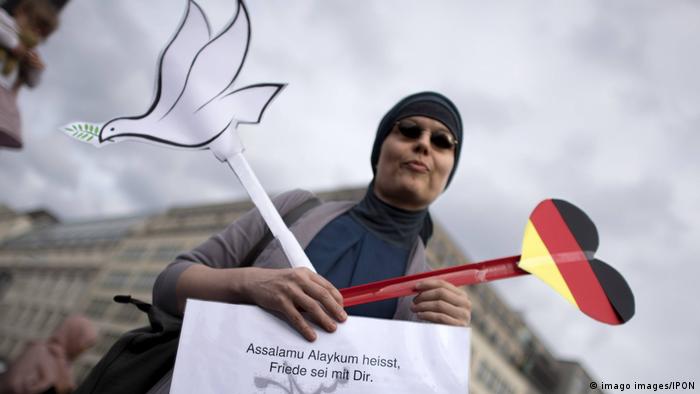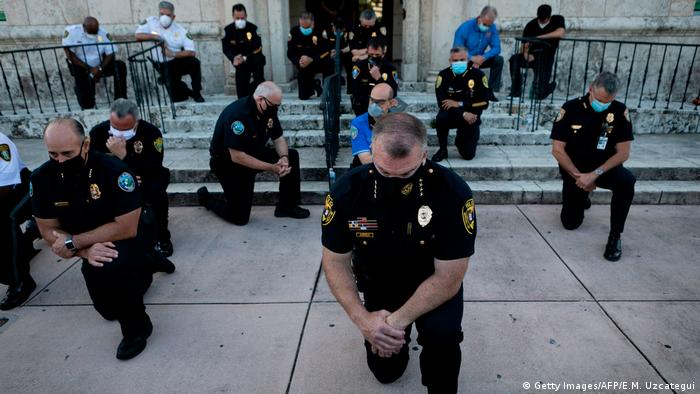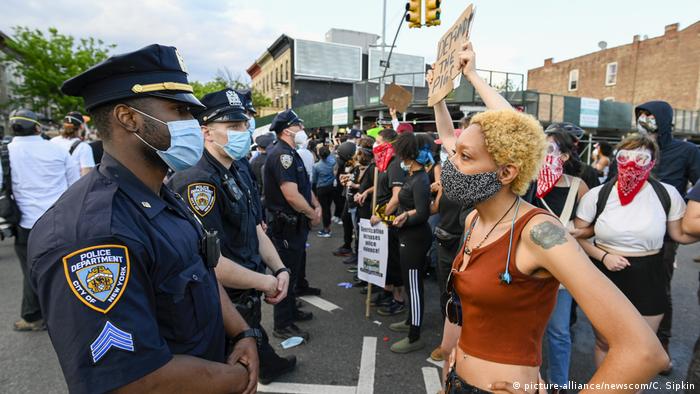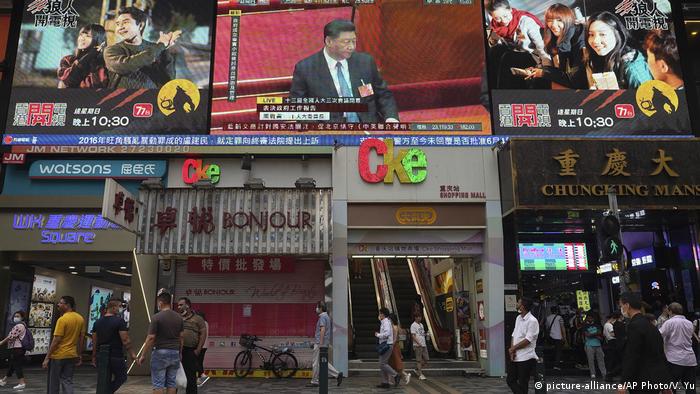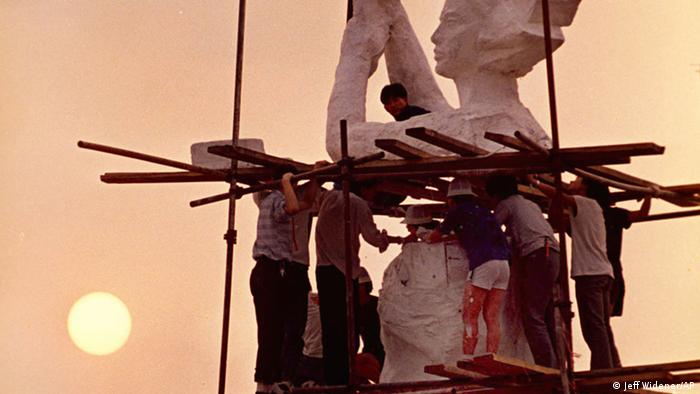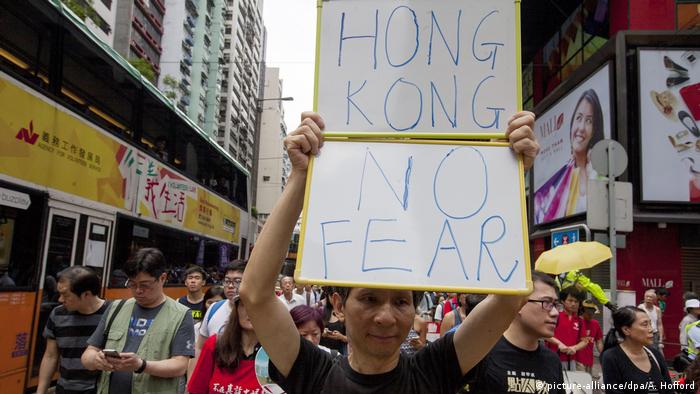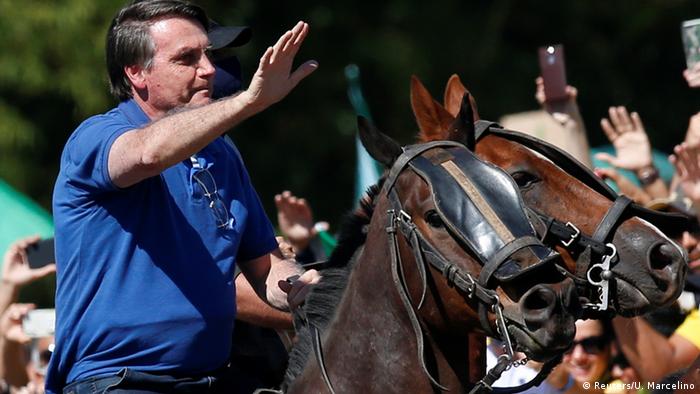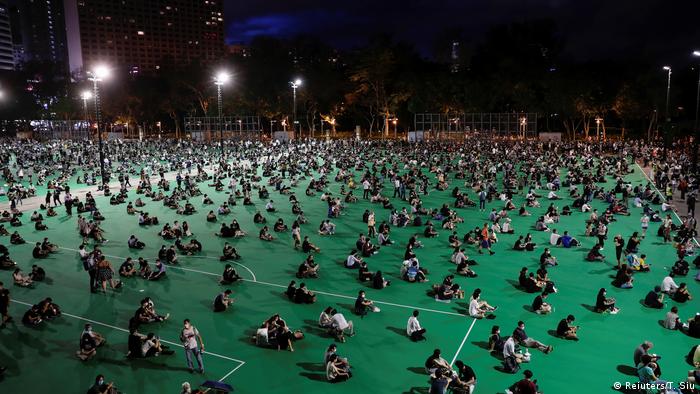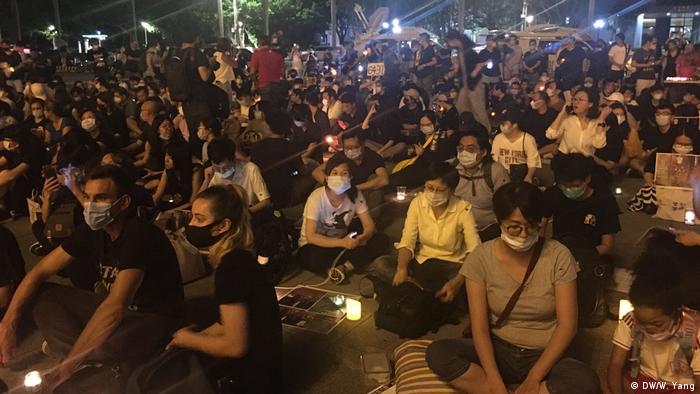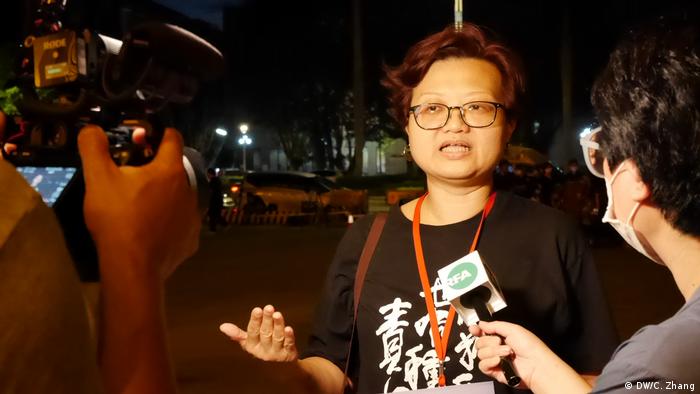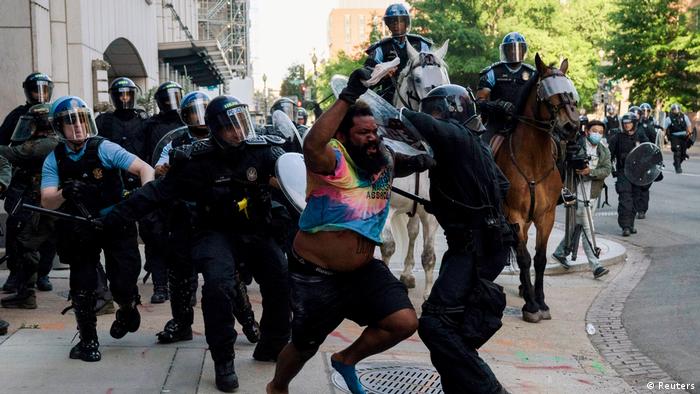Following the death of George Floyd in Minneapolis on May 25, many US companies have declared their solidarity with protesters. But how serious is their support? Sabrina Kessler reports from New York
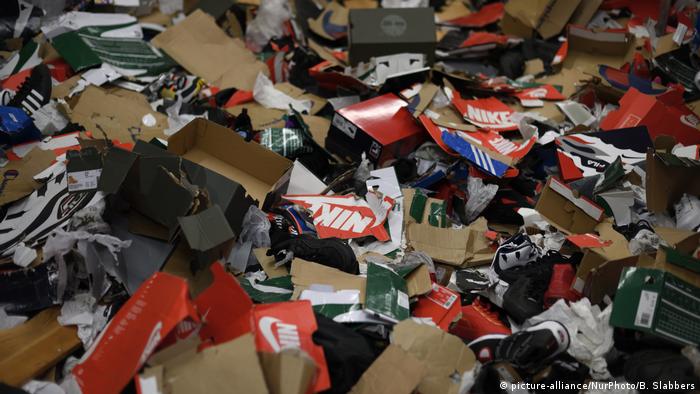
Protests in the wake of the death of 46-year-old black man George Floyd are in full swing across the United States. Thousands of Americans have taken to the streets to condemn police violence and racism. It's not just private individuals raising their voices for more justice. They've increasingly been supported by US companies.
"Racism continues to be at the root of so much pain and ugliness in our society — from the streets of Minneapolis to the disparities inflicted by COVID-19," said Citigroup CFO Mark Mason in a corporate blog.
The 50-year-old is among the few black Americans who've made it to the top of a global enterprise. African-Americans head just three of the 500 largest US companies, according to Boston Consulting. One of them is Kenneth Frazier, who's been at the helm of pharmaceuticals giant Merck for nine years.
"Our society is more divided than it's ever been," he said in an interview for CNBC. Mason and Frazier are not the only US entrepreneurs taking a clear stance on what happened to George Floyd.
No lack of response
The list of those commenting on the incident is long. Besides Starbucks, BlackRock, Nike and JPMorgan, the conservative Disney empire has also come out in support of the protests.
"We stand with our fellow black employees, storytellers, creators and the entire black community. We must unite and speak out," the company said.
Reebok, Twitter and Netflix have also taken sides with the protesters. Twitter changed the color of its logo from blue to black adding the hashtag #blacklivesmatter, while Netflix commented: "To be silent is to be complicit." Reebok for its part had this to say to its customers: "We are not asking you to buy our shoes. We are asking you to walk in someone else's."
In response to Floyd's killing, dating app Grindr deleted its "skin color" search filter. Carmaker General Motors pledged to create more inclusive workplaces and enhance in-house diversity. In a similar vein, Universal Music is setting up a task force to remove obstacles standing in the way of more diversity in the company.
Polishing corporate image
Wendy Melillo, a full-time professor of journalism at Washington's American University, says there's a reason why so many US companies have joined the debate about police violence and racism. Taking a stance improves your corporate image, she argues, as more and more customers expect firms to show a sense of social responsibility.

Protests have erupted all across the US in response to the death of George Floyd in Minneapolis. Sadly, some didn't stop short of looting
"This is an important change that's happened in American society," Melillo said. "Many companies actually have a strategy about how to approach these needs." Companies such as Kellogg's or Apple have actually been releasing special social responsibility reports for years now in addition to their regular earnings reports.
But sometimes corporate attempts to display solidarity backfire. Take Louis Vuitton chief Virgil Abloh, who donated the meager sum of $50 (€45) to an anti-racism organization and soon saw himself confronted with a major backlash.
Melillo believes that retail chain Nordstrom, itself a victim of recent lootings, has also put its foot in its mouth. "Nordstrom put out a vague message in which they said 'we are continuing having conversations about racial injustice.'"
"Where is the action message, the will to change something," the professor asked, adding that debates about racism had yielded little, with society at large not really changing. Rhetoric had to be turned into action finally, Melillo urged.
Will money do the trick?
The Bank of America announced earlier this week it will allocate $1 billion over the next four years to help black people become self-employed or find better jobs and accommodation. Facebook CEO Mark Zuckerberg pledged $10 million for organizations fighting racial discrimination. Sephora donated over $1 million to civil rights organization NAACP.
Keni Thacker, who's in charge of a pro-people-of-color network called "100 Roses from Concrete" says such activities are little more than opportunist corporate attempts.
"This money, these campaigns, this sympathy won't change society," he warned, adding that racism had been around for hundreds of years in the US, and no money had ever been able to make it go away. "And suddenly, everybody is pretending to care about us black people."

Back in 2017, Nordstrom parted with Ivanka Trump's fashion line, causing quite a stir
'Just a PR stunt'
Thacker said a brief look at global boardrooms revealed how hypocritical the whole debate was. Instead of pursuing a proactive policy, US firms always reacted to something bad happening, Thacker noted. And now, he added, they wanted to make headlines with generous donations. "That's just a PR stunt."
Wendy Melillo concedes, though, that some companies are more serious about fighting racism than others. She cited Nike as a positive example, saying the company had long been known for its unambiguous stance and just changed its slogan "Just do it" to "For once, don't do it!"
Just like retailer Target, Nike has become the target of massive lootings in recent days.
"Standing strong although stores are being targeted — that's a way to respond in an authentic way," Melillo concluded.
Watch video https://p.dw.com/p/3dFzy
US historian Edna Bonhomme on the response in Germany to George Floyd's death
Date 05.06.2020
Author Sabrina Kessler (New York)
Keywords George Floyd, Minneapolis, companies, solidarity, police, justice
Permalink https://p.dw.com/p/3dFzy
